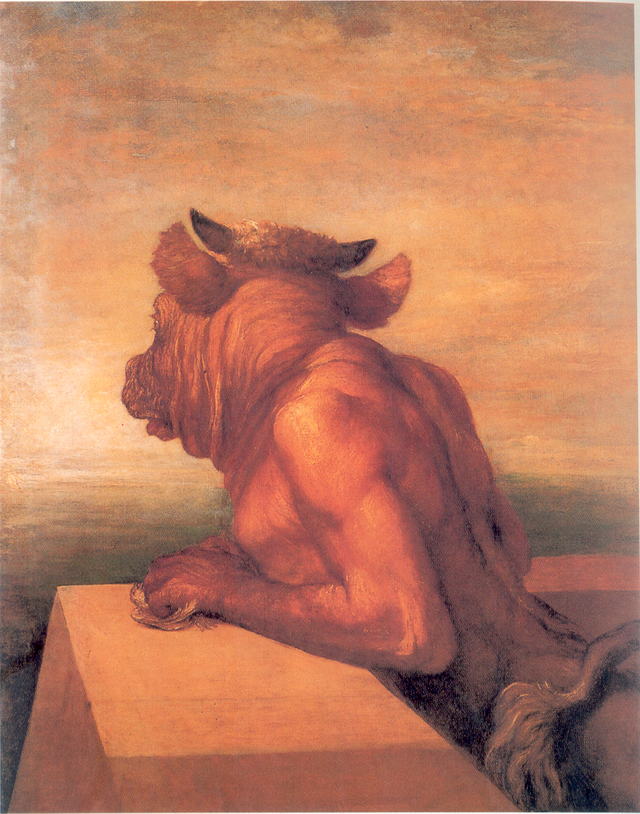The infinity of Asterion - Part V
This fifth part of the analysis of "The house of Asterion" by Jorge Luis Borges is approached from the concept of time that in the story is revealed at different levels.
TIME, ANOTHER LABYRINTH?
The time of the myth
Guided by the Greek myth in which the story is framed, it could be tended to locate it temporarily in Ancient Greece. However, this temporary location only makes sense to establish the origin of the myth, that is, the moment in which it was elaborated by men, but it is not applicable to the myth itself. In the mythological context we must speak of a mythical time, certainly fantastic, whose relationship with historical time is only pretended.
The time of Asterion
As for the time of the narration properly, we can not speak of a time that takes place objectively. The monologue of Asterion may have taken place in a minute, in an afternoon, in a few weeks, in several years; there is no reference that allows us to objectify it. All that is indicated as objective temporal data is the entry every nine years of the nine men to whom Asterion kills; but this data does not allow us to know how long Asterion has been in the house and, in any case, given the extension of those intervals, it suggests a prolonged period.
Given that almost the entire story (except the outcome) is a soliloquy in the mouth of the protagonist, the time that dominates the plot is the subjective or psychic. In the content of the interior monologue of Asterion, expressions and descriptions predominate that refer to the loneliness and tedium that he suffers, and his perception of the passing of time is stated in this sentence: "A certain generous impatience has not permitted that I learn to read. Sometimes I deplore this, for the nights and days are long”. Time passes slowly for Asterion who needs to be distracted, for which he invents games or indulges in meditations on the house-universe that shelters him.
The time after death
It seems that, in the perception of Asterion, time and space are to some extent interrelated. When he thinks about his own death; that is, in the term of his days in the hands of that redeemer (Theseus); He expresses: "I hope he will take me to a place with fewer galleries and fewer doors". Escaping time can also mean escaping from that infinite space. As a mortal creature, he finds his salvation: "Since then my loneliness does not pain me, because I know my redeemer lives and he will finally rise above the dust".
However, for Asterion death does not mean the end of time, but thinks that it will take him to a different place. Asterion is shown as who believes in eternity. But what form does that eternity take for him? In principle, one would say that its conception is related to the Christian sky; what he imagines for himself is an eternal life in a place that is understandable, that is, that is not infinite (unless, with Cantor in mind, one wants to speculate with an Asterion that after his death not only became temporarily eternal, but also spatially infinite, containing in itself that other infinity that would be his heaven).
Time, a labyrinth
There is, however, a disturbing possibility: that death does not free him from that condemnation, but that time turns out to be another labyrinth from which Asterion has no memory.
This conjecture can be interpreted from the following sentence that Asterion pronounces after recognizing the sun and himself as the only thing that is not repeated, the only thing that is only once: "Perhaps I have created the stars and the sun and this enormous house, but I no longer remember".[14]
Asterion then considers the possibility of having created his own world. But if that were so, it could be understood that also that redeemer who was prophesied to him, and in whom he believes, would be his invention; consequently, the death that would come through him might not mean his liberation, but only the prolegomena of a new beginning.
[14] Lets also observe the use of polysyndeton, which has the effect of calming, slowing down the story. This resource is used twice more. In the first sentence of the story: "I know they accuse me of arrogance, and perhaps misanthropy, and perhaps of madness" and when he imagines talking to the other Asterion: "Now we shall return to the first intersection or Now we shall come out into another courtyard Or I knew you would like the drain or Now you will see a pool that was filled with sand or You will soon see how the cellar branches out".
